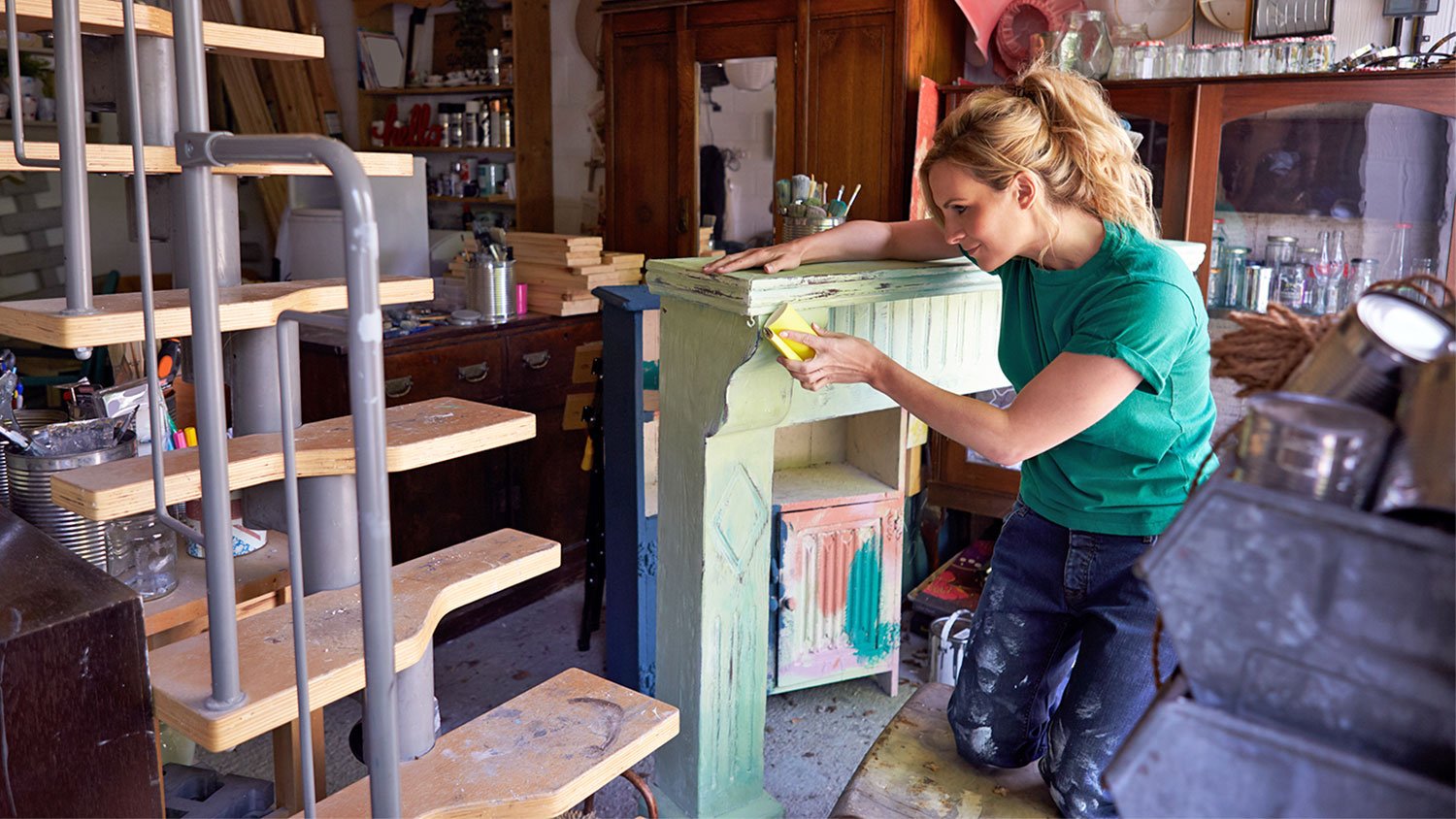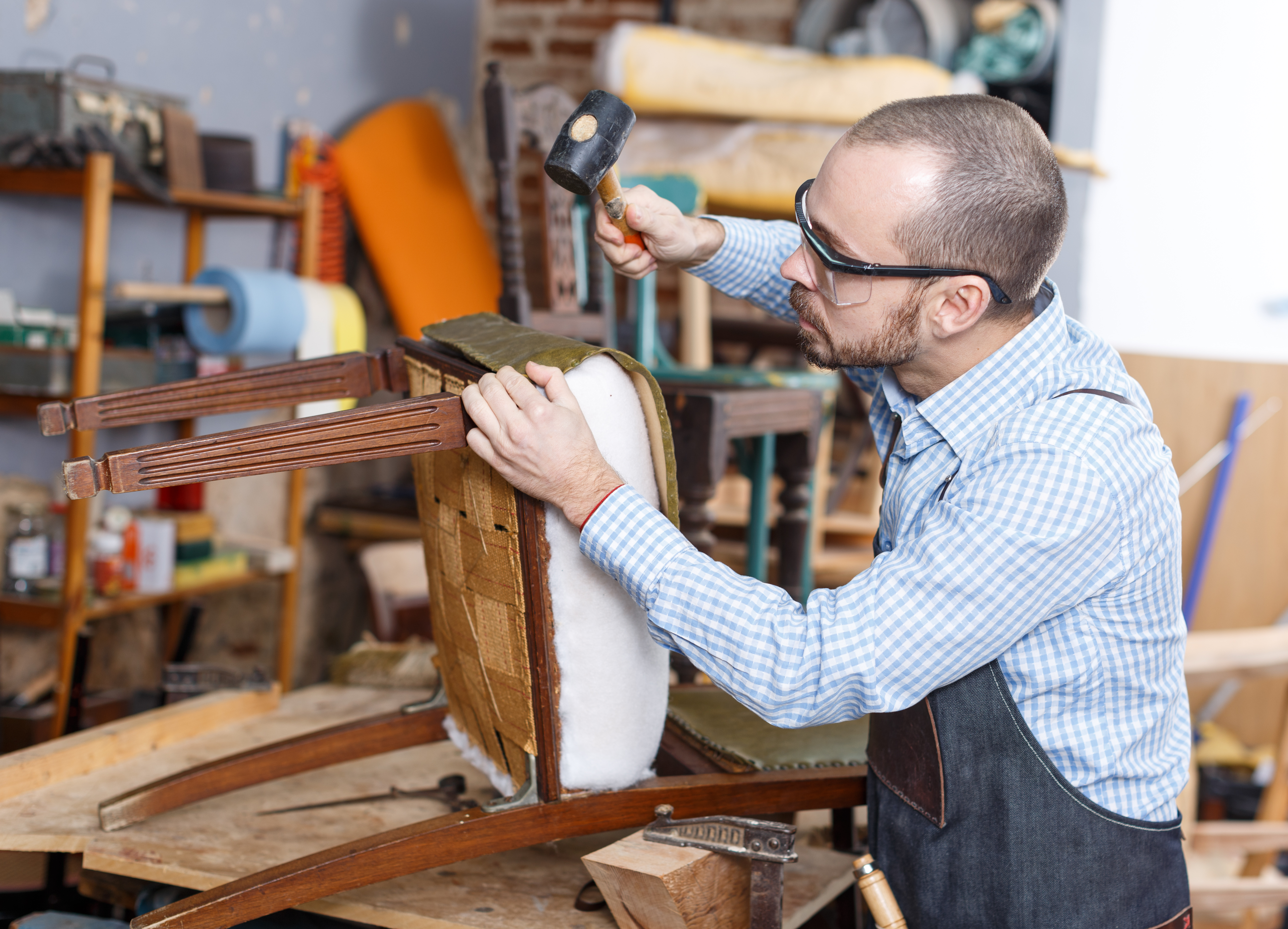
Get transparent furniture refinishing cost information and learn average prices, cost factors, and ways to save before hiring a pro and starting your project.
Furniture refinishing costs depend on your project and location. Check with a local pro for your specific job.
Custom furniture costs depend on type, size, and materials.
Labor and design complexity can significantly impact your budget.
Depending on the type of pro you hire, expect to pay between $30 and $150 per hour.
Delivery adds $50 to $500 to your total, or more for long-distance delivery.
Disposal, installation, and add-ons may increase the total project cost.
This article was created using automation technology and thoroughly fact-checked and edited by an Angi Editor in accordance with our AI policy.
On average, custom furniture costs $1,000 to $4,250, with an average price of $2,600. Prices vary based on furniture type, size, materials, and craftsmanship.
Custom furniture gives you the flexibility to match your style and space perfectly. This guide walks you through what impacts custom furniture cost, so you can plan confidently and get the most value from your investment.
Several key elements shape the final price of your custom furniture. Let’s break down how type, size, materials, and brand all contribute to what you’ll pay.
The type of furniture you commission is one of the biggest drivers of custom furniture cost. Freestanding pieces like tables, desks, or chairs tend to cost less than built-in units such as custom cabinetry or bookcases, which require more labor and installation.
Functionality adds to the price—think about storage drawers, shelving, or moving parts, which demand more time and skill. Upholstered items, like sofas and beds, also cost more due to fabric, padding, and sewing work.
| Furniture Type | Average Starting Cost |
|---|---|
| Table | $1,200 |
| Sofa | $2,200 |
| Bed | $1,000 |
| Built-in cabinetry | $500 per linear foot |
| Shelving | $1,000 |
| Desk | $400 |
| Dining chairs (set of 6) | $1,300 |
Size has a direct impact on custom furniture cost. Larger pieces require more materials and labor, while intricate, compact items may also command higher prices because of precision work. Oversized furniture often comes with additional handling and delivery fees. Custom furniture is often priced by the square foot or linear foot, with rates ranging from $200 to $500 per square foot, depending on complexity and materials.
Material choice has a powerful effect on custom furniture cost. Premium hardwoods like walnut, oak, or maple are more expensive than softwoods or engineered wood. Metal, glass, stone, and specialty materials such as reclaimed or eco-friendly woods also raise costs.
Upholstery fabrics and leathers have a broad range, with designer or performance fabrics costing more. The finish, hardware, and any custom details (like inlays or carvings) will also increase the price. Durable, easy-to-maintain materials may cost more upfront but save on maintenance over time.
The brand or maker you choose can influence your custom furniture cost. Well-known national brands and highly regarded artisans often charge more due to their reputation, established craftsmanship, and more comprehensive warranties.
Local makers may offer competitive pricing and more direct communication, but warranty and aftercare options may differ. Brand choice can also affect lead time and overall perceived value, so weigh these factors carefully when selecting your builder.
Custom furniture installation often requires a team of skilled professionals, including furniture makers, carpenters, upholsterers, finishers, and installers. Labor rates vary by experience, location, and project complexity. Expect to pay $30 to $150 per hour for expert work, with some projects billed as a flat fee.
Minimum fees may apply for small jobs or consultations. Labor costs are higher in urban areas or regions with strong demand for skilled trades.
| Pro Type | Average Hourly Rate | Description |
|---|---|---|
| Furniture maker | $40–$120 | Designs and builds the custom piece |
| Carpenter | $30–$150 | Installs built-ins, structural work |
| Upholsterer | $40–$100 | Handles all fabric and padding work |
| Installer | $50–$100 | Delivers and sets up furniture in your home |
Delivery fees for custom furniture depend on the size, weight, and distance. Local delivery can range from $50 to $500, while long-distance or out-of-state shipping may reach $1,000 or more. Special handling for oversized or delicate pieces adds to the cost, as does insurance for high-value items. White-glove delivery, which includes unpacking, furniture assembly, and placement, often costs an extra $150 to $500 per item.
If you need old furniture or packaging removed during installation, expect additional haul away charges. Fees range from $75 to $250 per item, depending on the size and type. Some makers include basic haul away in the delivery fee, while others bill it separately. Disposal or recycling of furniture with hazardous materials (like treated wood or upholstery) may cost more.
Several options can increase your custom furniture cost. Common add-ons include:
Custom finishes or stains for a unique look.
Built-in lighting or integrated electrical features.
Hardware upgrades, such as premium handles or hinges.
Additional storage or organization systems.
Specialty joinery, inlays, or decorative accents.
Rush orders or expedited production and delivery timelines.
Each add-on is priced individually, so clarify costs with your maker before finalizing your design.
Beyond the initial purchase and installation, there are other expenses that factor into the total custom furniture cost over time.
Most reputable custom furniture makers offer warranties, either included or as an add-on. Warranties often cover workmanship, materials, and structural integrity for one to 10 years. Expect to pay 5% to 15% of the purchase value, starting at $150, for extended warranty coverage, especially for high-value or complex pieces. Strong warranties can offer peace of mind and reduce long-term repair costs.
Some custom furniture pieces require ongoing spending. This includes cleaning and care products, fabric or leather protection, and wood sealants. Built-in lighting or electronics will add to your utility bills, though these costs are minimal. Investing in quality protective treatments early on can help preserve your furniture’s appearance and function.
Custom furniture needs routine care to stay in top condition. Maintenance can involve refinishing wood, reupholstering fabric, or tightening hardware. Most homeowners spend $200 to $1,000 every few years, depending on the piece and usage. Regular dusting, cleaning, and minor touch-ups will extend the lifespan and maintain the look of your investment.
Repairs for custom furniture are sometimes needed for issues like scratches, dents, joint failures, or upholstery tears. Minor repairs, such as fixing a loose joint or patching a small tear, might cost $65 to $200.
More extensive repairs, like reupholstering a sofa or refinishing a large table, can range from $300 to $2,000+. Simple fixes can be handled at home, but complex repairs are best left to professionals to preserve the quality and value of your piece.
Choosing between DIY and professional custom furniture can have a major impact on cost, quality, and satisfaction. DIY projects may seem more affordable since you only pay for materials and tools, but you’ll need significant skills, time, and specialized equipment to achieve professional-level results. DIY material costs vary depending on the type of furniture you’re making, and you’ll also need to factor in tool purchases or rentals and the value of your time.
Hiring a pro ensures expert craftsmanship, access to premium materials, and accountability for timelines and warranties. The risks of DIY include mistakes, safety hazards, and a finished product that may not meet your expectations. For complex projects or pieces that require structural integrity or upholstery, it’s best to work with a professional.
When your custom furniture shows signs of wear or damage, deciding between repair and replacement depends on several factors. Consider the piece’s age, overall condition, and sentimental or historical value. If furniture repairs or refinishing costs less than 50% of the price of a new piece and the structure is sound, repairs are often the smarter choice. However, if the damage is extensive, materials are unavailable, or the piece no longer fits your needs, replacement may be more cost-effective.
Environmental impact is another consideration. Repairing furniture reduces landfill waste and supports sustainability. If your piece is under warranty, repairs might be covered at little or no cost—always check before replacing.
Consider these cost-saving strategies to make your custom furniture project more budget-friendly:
Choose simpler designs or standard sizes to reduce design and labor fees.
Get multiple quotes from local furniture builders to ensure competitive pricing.
Select cost-effective materials that still offer durability and style.
Limit custom features and add-ons to stay within budget.
Work with local artisans to minimize shipping and delivery expenses.
Order multiple pieces together to negotiate potential discounts.
Be flexible with your project timeline to avoid rush charges.
Maintain and care for your furniture regularly to extend its lifespan.
Home is the most important place on earth, which is why Angi has helped more than 150 million homeowners transform their houses into homes they adore. To help homeowners with their next project, Angi provides readers with the most accurate cost data and upholds strict editorial standards. We extensively research project costs to develop the pricing data you see, so you can make the best decisions for you and your home. We rely on reputable sources, including the U.S. Bureau of Labor Statistics, academic journals, market studies, and interviews with industry experts—all to ensure our prices reflect real-world projects.
Want to help us improve our cost data? Send us a recent project quote to [email protected]. Quotes and personal information will not be shared publicly.
From average costs to expert advice, get all the answers you need to get your job done.

Get transparent furniture refinishing cost information and learn average prices, cost factors, and ways to save before hiring a pro and starting your project.

Wondering how much it costs to refinish a table? Get average prices, cost factors, and tips to help you budget and choose between DIY or hiring a pro.

Discover the average furniture reupholstery cost, what impacts pricing, and how to save money on your next project. Get expert tips and cost breakdowns.

If you’re looking into refinishing some furniture, here are some common furniture refinishing questions you can expect to discuss with a pro.

Discover average furniture repair cost, key price factors, and ways to save. Get expert tips to budget for your next furniture repair project.

Have a piece of furniture that doesn’t work in your space or needs a refresh? Learn how to paint furniture at home with these simple steps.